MercoPress. South Atlantic News Agency
Tag: Venezuela Central Bank
-
Sunday, December 11th 2022 - 07:59 UTC
Venezuela's minimum monthly wage back below US$ 10

Venezuela's Bolivar fell 17% against the US dollar from less than a week ago, leaving minimum monthly pensions and wages at around US$ 9.20, it was reported in Caracas Friday. Set at 130 bolivars in March, incomes went down 69% this year.
-
Tuesday, December 13th 2016 - 10:23 UTC
Chaos in Venezuela: bills and coins pulled out of circulation to combat hyperinflation
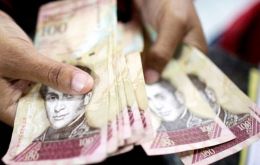
Venezuelans hastily dumped the country's 100-bolivar bill, the largest denomination, on Monday after the government said it would be pulled from circulation as the crisis-racked nation suffers what is believed to be the world's highest inflation. Populist president Nicolas Maduro said the withdrawal of the bill — worth just 2 U.S. cents on the black market — was needed to reduce contraband of the banknotes on the Venezuela-Colombia border.
-
Wednesday, July 9th 2014 - 07:32 UTC
Venezuela knocks on the door of international banks and promises to respect debt payments
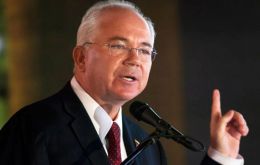
After slamming international banks for more than a decade, the Venezuelan government met with investment bankers to try to change the perception of risk associated to the country and prepare the scenario for upcoming economic measures.
-
Wednesday, August 14th 2013 - 19:36 UTC
After inflation hits 42%, Maduro names a more pragmatic president to the Central bank
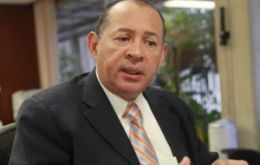
Venezuela President Nicolas Maduro appointed the third central bank president this year as Latin America’s biggest oil exporter seeks to rein in the fastest inflation among the world’s major economies.
-
Wednesday, August 7th 2013 - 14:12 UTC
Venezuela inflation in July 3.2% and 42.6% in the last twelve months
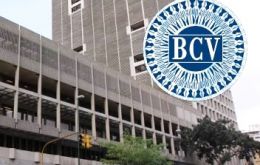
Venezuela consumer prices last month rose at the fastest pace since the index was created in 2008 amid worsening shortages of staple goods such as meat, sugar and milk. Prices rose 42.6% in July from a year earlier and 3.2% in the month, the central bank said in an e-mailed statement on Tuesday.
-
Monday, April 1st 2013 - 09:55 UTC
Venezuela auctions dollars; value is estimated at double the official rate
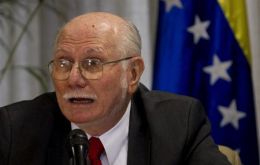
Venezuelan government foreign currency auction for local importers has triggered de-facto currency devaluation, the second in less than 50 days, analysts said. Venezuela has had strict currency exchange controls since 2003 in an attempt to halt capital flight, under which the government sold limited amounts of foreign currency at an official rate.
-
Thursday, December 27th 2012 - 19:49 UTC
Maduro with more power on economic affairs; devaluation of the Bolivar in the agenda

Venezuelan president Hugo Chavez delegated certain responsibilities in economic affairs to Vice-President Nicolas Maduro including the right to authorize debt sales and seize assets. The announcement comes at a moment when significant economic decisions must be taken following the profligate spending leading to last October’s election.
